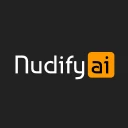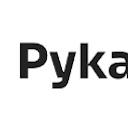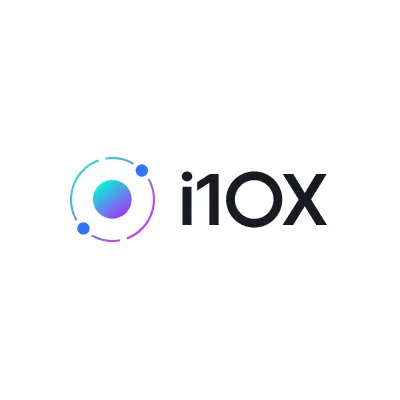AI Video Clip Generator

Why Audiolabs.io Shut Down: The Rise and Quiet Fade of a Social Audio Startup
Ever wondered why Audiolabs.io suddenly disappeared, despite riding the wave of the social audio boom? Just a few years ago, it had promising traction—thousands of users, integration with top clubhouse-style communities, and a strong AI-driven tech backbone. And then… it vanished.
So what happened?
Short answer: Audiolabs.io, originally a social audio tool developed under the Lychee brand, shut down due to low user monetization and a strategic shift to more profitable video editing services—ultimately getting absorbed during Lychee’s acquisition by podcast marketing company Fame.
Long answer? Let’s explore how a once-growing platform lost momentum, why its pivot to video may have been its best move, and what startups can learn from its journey.
What Was Audiolabs.io?
Audiolabs.io was a social audio platform created around 2022 by Lychee, a startup focused on content creation tools. Originally part of a broader portfolio that began with a service called Clubmarket—a platform connecting creators with advertisers for Clubhouse-style content—Lychee launched AudioLabs to help audio creators host, distribute, and monetize live audio content.
At its peak, the Audiolabs platform supported social audio channels such as “The Largest Entrepreneur Club on Clubhouse,” boasting over 270,000 followers. It also offered four self-built MVPs (minimum viable products) designed to help creators improve audio production and engagement.
But while the features were ambitious, the platform quickly hit a key wall: its users weren’t making enough money to justify using it long-term.
Why Did Audiolabs Fail?
🟢 Short Answer:
Audiolabs.io struggled with low user monetization, limited market traction, and an increasingly saturated social audio space. It was eventually shut down during Lychee’s pivot to video editing—before Lychee was acquired by Fame in late 2024.
🧠 Long Answer: The Full Breakdown
Let’s dig into the complex (yet all-too-common) reasons for the platform’s demise:
1. 🧩 Poor Product-Market Fit for Audio Creators
Lychee’s own blog admits it openly: audio creators just weren’t earning enough revenue to reinvest in tools like Audiolabs.
Despite some early interest—5,000 monthly active users organically, according to their blog—the market for monetizable social audio was small. Creators couldn’t see ROI, and audiences were limited. Eventually, this made it unsustainable as a standalone platform.
2. 💸 Financial Viability Issues
There’s no explicit report of a financial collapse, but the pivot toward video (which proved to be far more lucrative) implies Audiolabs was not bringing in the money needed to grow.
With metrics like “10,000+ video clips” and “millions of views” cited post-pivot, it’s clear Lychee chose to follow revenue momentum—and that momentum wasn’t in live audio.
3. 🌊 Harsh Competitive Landscape
Audiolabs was up against giants like Clubhouse (already struggling to retain users themselves) and Twitter Spaces. The wider “social audio” movement peaked around 2021 and saw significant drop-off by late 2022.
In a niche shrinking fast, Audiolabs simply couldn’t carve out a meaningful slice of the remaining pie.
4. 🎯 Strategic Leadership Pivot
This was less a flameout and more a calculated redirection.
Leadership behind Lychee made deliberate pivots—from simulcasting tools, to audio-focused MVPs, and ultimately to AI-driven video editing. They weren't stubbornly tied to one idea, and decided to drop a weak-performing segment instead of dragging it along.
That decision paid off. By the time Fame acquired Lychee in October 2024, their video-editing tech (eventually rebranded as Fame Clips) was already gaining traction.
5. 📉 No Legal or Regulatory Pressures
Unlike some startups that get shut down due to compliance issues, Audiolabs faced no publicly documented legal hurdles. Its shutdown was a strategic pivot, not a collapse or forced closure.
Audiolabs vs. Competitors: What Did Others Do Differently?
Take Clubhouse, for instance. Despite its own visible decline, Clubhouse had one major advantage: early viral growth.
With investor buzz (over $100 million in funding) and celebrity users creating FOMO-driven audio rooms during the 2020 lockdown era, Clubhouse built brand prestige quickly. Audiolabs never had that advantage. It remained a utility—a tool for creators instead of a destination for audiences.
And then there are video platforms like Descript or Riverside. These companies leaned hard into content repurposing, helping creators get maximum value from each piece of content. Lychee’s pivot to video mimicked that model—and put them on the acquisition radar of Fame.
In short, Audiolabs entered a shrinking audio market with a mid-sized tool while the creator economy was shifting toward snackable, visual content.
Final Thoughts: Audiolabs Is Out, but Its Legacy Lives On (Kinda)
If there’s one thing we’ve learned from Audiolabs.io’s short but eventful run, it’s this: even a strong idea with solid tech won’t survive without a sustainable market.
Rather than sinking resources into an unprofitable venture, Lychee’s leadership made the smart move to pivot—an example of agility some startups miss. And that decision led to an acquisition and continued relevance through Fame Clips.
Today, audiolabs.io may be gone, but the technology and team behind it continue to thrive under a new name.
FAQs About Audiolabs.io
Who founded Audiolabs?
Audiolabs was created by Lychee, a startup founded around 2021. While no individual founder is conclusively cited, the project was a product of Lychee’s team.
When did Audiolabs come out?
Audiolabs launched in late 2021 or early 2022, initially offering tools for social audio creators.
When did Audiolabs shut down?
The platform was quietly discontinued in 2023, as Lychee pivoted fully to AI-driven video editing.
How much funding did Audiolabs/Lychee raise?
While specific funding numbers are unconfirmed, Lychee is known to have raised seed funds that fueled both Audiolabs and the video editing pivot.
Why did Audiolabs fail?
Short answer: Low user monetization and poor market fit. Long answer: Customer traction never reached sustainable levels, and competing in an oversaturated social audio space wasn’t yielding dividends.
Is Audiolabs.io still online?
The audiolabs.io domain appears to redirect or display content under Fame’s ownership, but the original Audiolabs audio platform is no longer available as a separate service.
Even great ideas need the right timing, monetization model, and market support. Audiolabs.io had the vision—but its pivot was what truly gave it a second life.
What is audiolabs.io?
AudioLabs.io is a sophisticated AI-powered platform aimed at assisting podcasters and content creators in converting their audio content into concise, captivating video clips. Utilizing artificial intelligence, AudioLabs.io automatically produces high-quality social media videos from podcast material, enhancing audience engagement and broadening reach.
How does audiolabs.io work?
AudioLabs.io utilizes advanced AI technology to convert podcast content into short, engaging video clips. The process is straightforward:
Upload Your Podcast: Users begin by uploading their podcast audio files to the platform.
AI Processing: The AI algorithms analyze the audio, identifying key segments and extracting relevant clips.
Video Generation: The platform automatically creates short video clips from these segments, incorporating visual elements and captions to enhance engagement.
Customization: Users can customize the generated clips by adding branding, adjusting the length, or selecting specific themes.
Export and Share: Once the clips are finalized, they can be exported and shared across social media platforms or other channels to increase audience reach.
This streamlined process allows podcasters and content creators to save time on editing while boosting the visibility and engagement of their content.
How much does audiolabs.io cost?
AudioLabs.io provides a variety of pricing plans to accommodate different user needs:
Basic Plan: Priced at $4.99 per month, this plan includes:
- 3 Spaces per month
- Up to 1 hour of space duration
- Standard video templates
- Publishing within 72 hoursProfessional Plan: Available for $19.99 per month, this plan offers:
- 10 Spaces per month
- Up to 2 hours of space duration
- Premium video templates
- Publishing within 24 hours
- Custom branding optionsEnterprise Plan: This plan features custom pricing and includes:
- 25 or more Spaces per month
- Up to 3 hours of space duration
- Custom video templates
- Publishing within 6 hours
- Custom branding options
Additionally, AudioLabs.io offers a 7-day free trial for new users to explore the platform's features.
What are the benefits of audiolabs.io?
AudioLabs.io offers several advantages for podcasters and content creators:
Time-Saving: The platform automates the creation of video clips from podcast content, significantly reducing the time spent on editing and production.
Enhanced Engagement: Short, captivating video clips are more effective at grabbing audience attention on social media, leading to increased engagement and broader reach.
Professional Quality: AudioLabs.io produces high-quality videos with a polished, professional appearance, enhancing the overall appeal of your content.
Customization Options: Users can tailor the generated clips by adding branding elements, themes, and captions to ensure alignment with their brand identity.
Increased Visibility: Converting audio content into video format allows creators to reach a larger audience on platforms that prioritize video content.
Ease of Use: The platform features a user-friendly interface, making it accessible for individuals with minimal technical skills to create engaging video content.
What are the limitations of audiolabs.io?
While AudioLabs.io provides numerous advantages, there are some limitations to consider:
AI Limitations: The AI may not always accurately identify the most engaging or relevant segments of your podcast, which can lead to video clips that are less impactful.
Customization Constraints: Although there are some customization options available, they may not be as extensive as those offered by dedicated video editing software.
Human Touch: While the platform incorporates AI and human editing, the level of human moderation and customization can vary, potentially affecting the consistency of the final product.
Cost: Depending on usage, the expenses can accumulate, particularly if you require numerous video clips or premium features.
Learning Curve: Although the platform is user-friendly, there may still be a learning curve for individuals who are not familiar with video editing or AI tools.






















.webp)









